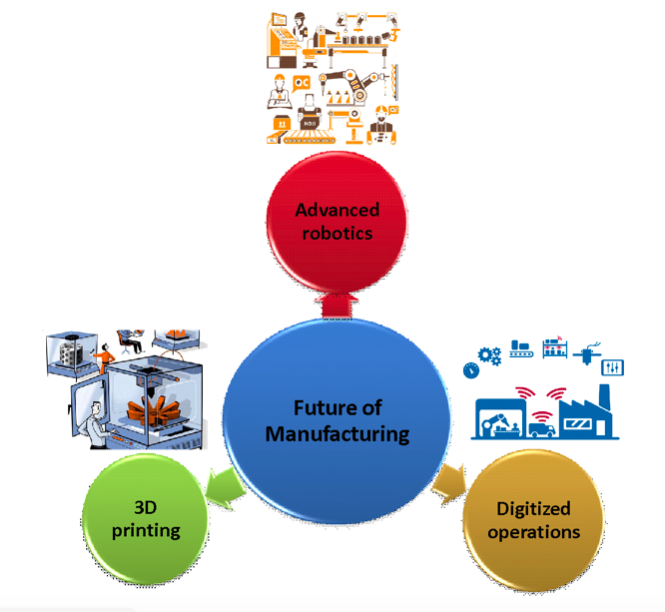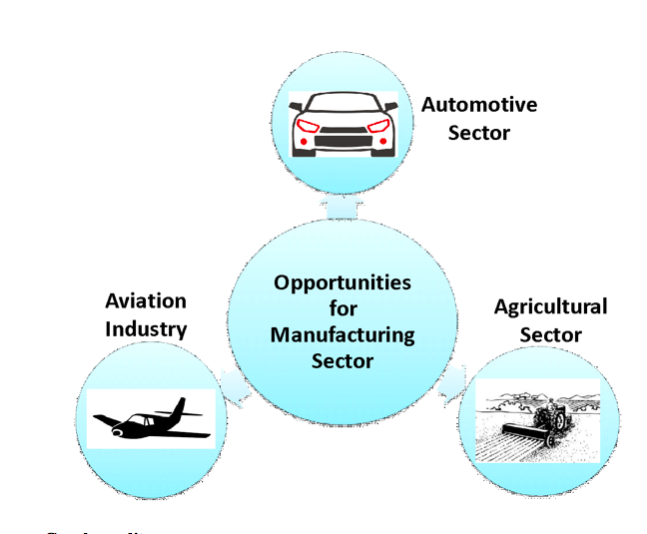India is becoming digital. These days, computers are found almost everywhere; right from a medical shop to government offices, industries, etc. Considering its global use, opportunities are also available worldwide. Core subject knowledge, problem-solving approach, industry internship, industry-academia, collaboration, and self-development are key factors of the computer and IT engineering curriculum.
What is the difference between Computer and IT engineering?
The difference between Computer and IT engineering is that computer scientists design and develop the software programs that IT professionals use and maintain.
What is Computer Engineering?
Computer Engineering is the study of programming and computing. A degree in computer engineering gives you the foundational skills needed to pursue a career in coding or computer programming. It gives you a good understanding of the theory behind the processes involved in creating computer programs and applications.
What is Information Technology Engineering?
Information Technology is the practical application of technology. A degree in IT engineering gives you knowledge of managing the company’s IT infrastructure and assets. Information Technology degree programs don't give you a detailed understanding of programming but they help you learn basic programming. Going forward, you can choose to specialise in areas such as database management, networking, or security.
Job opportunities in Computer and IT engineering
IT and CS degrees can lead to similar jobs but the differences between the two are quite pronounced. A computer scientist should enjoy mathematics and software design whereas an IT professional should enjoy installing computer systems, using software and maintaining networks and databases. In general, the relationship between the two is quite close and interdependent.
Jobs for computer engineers
A computer engineering degree can get you jobs like programmers or software engineers. A Computer Engineering degree helps the students to choose the correct design patterns, algorithms and data structures for programs, but most students graduate knowing only one or two programming languages, usually C++, Python or Java. A professional software developer should know several other languages, including HTML, CSS, JavaScript, MySQL, PHP, Python and Java.
Jobs for IT engineers
An IT degree can get you jobs in information security, network architecture, database administration, systems administration, and computer support. An information security professional requires knowledge of discrete math and algorithms, while database administration requires knowledge of programming. Information security analysts usually have certifications, such as ISC or CISSP. The IT professionals must be very familiar with how to use operating systems and server software, including Linux, Apache, OpenSSL, Windows Server, Oracle, MySQL, and Microsoft SQL Server.
Why should you choose Computer or IT engineering?
Industries are fully automated today due to IT infrastructure and computing machines. Even mechanical, electronics, automobile industries, and others are using IT infrastructures for controlling their plants. As computer and IT is applied in many domains, there is huge research scope for getting better automation and efficiency. In addition, many social issues are handled through the machine and deep learning systems that exhibit superhuman intelligence.
1. Multiple Job Opportunities
Since every industry and business sector relies on computers and technology, job opportunities for computer engineers are very broad and flexible.
IT and computer engineers work in multiple disciplines, including electronics, robotics, artificial intelligence, computer systems, embedded architecture, etc.
2. High Salary Jobs
Computer and IT engineers top the list for jobs with the highest earning potential.
3. High Job Satisfaction
Computer and IT engineers face interesting challenges and are always learning new skills. They generally have reported feeling very satisfied in their jobs.
4. Meaningful Work
A huge part of job satisfaction comes from knowing that your work is valuable and making a positive difference in the world. The good news is that with the computer and IT engineering, you are assured that your work is making a difference in the world.
Vishwakarma Institute of Technology, Pune offers a Bachelor's Degree in Engineering that ensures that you have the in-demand skills and knowledge to land a job in your desired field.
Production engineering is related to the application part of mechanical engineering. Once the product is designed by a mechanical engineer, it is sent to the production line. This is where the role of a production engineer comes into play. There are enormous opportunities for such engineers as they closely work with the product that is being manufactured. The challenges on the production line can be minimised with the expertise of these engineers.
If you are looking at a career in production engineering, then you must read the following frequently asked questions about production engineering.
What is production engineering?
Production engineering, also known as manufacturing engineering is the science of design, development, implementation, operation, maintenance, and control of all processes in the manufacturing of a product. A production engineer creates safe and efficient production processes.
What does a production engineer do?
Production engineering is all about the products and their processes. Behind each product is a complex production line. A production engineer decides how a product, be it a newspaper, a water bottle or an iPod, is going to be made, what machines are going to make it and how it can be made as efficient and as safe as possible. As long as there is a process and a production line, the production engineer has to be there.
Dreaming up a design and sending it throughout the land to various shops is one thing, but actually producing something is the tricky bit that falls on the desk of the production engineer.
Eligibility criteria for B. E. Production Engineering
The eligibility criteria for B.E. Production Engineering course is as follows:
The students should have passed their 10+2 examination with an aggregate of 60% marks and above or equivalent CGPA in the stream of Science.
Applicants are also required to clear the various entrance examinations held at state and national levels such as AIEEE, MH-CET, etc. Some institutions may hold their own entrance examinations for furthering the admission process.
What is the syllabus for Production Engineering?
The syllabus for the Production Engineering course gives a deeper insight into the sector of production, designing and methods of resolving shortcomings with the ultimate motto of providing customers with satisfactory service in a cost-effective manner.
The students are introduced to concepts and skills in the creation of integrated designs for solving the shortcomings on the production front.
Jobs for Production Engineers
After successful completion of the program, the graduates can look for lucrative job scopes in various sectors including IT firms, MNCs, Production Engineering departments which allows them to showcase their intelligence and skills. The average salary for graduates in Production engineering falls between INR 4 to 18 LPA based on qualifications and experience
It also depends on the type of production that an individual wants to do. A graduate can work in the oil or gas energy companies and help them to improve their processes and make things more cost-effective. One can choose to work with the fast-moving consumer goods (FMCG) company and advise them on how a piece of machinery can package three more apples in that box or save Rs. 100 a shipment.
The job of a production engineer is to basically answer the question: “how can this be produced in a better way?”
Before opting for any degree course, make sure you do detailed research about the field of engineering that you are interested in! Hope you make the best choice and build a strong career.

In earlier days, parents were keen on their children choosing core fields like Engineering or Medicine only. Eventually, with the advancement in the field of Information Technology, this scenario is changing.
The IT industry in India gained momentum by establishing relations with foreign clients and enterprises willing to outsource. Since then, India is known as the IT hub of the world.
In the present scenario, many students are looking for their career in the field of Information Technology. The government of India has introduced, Master of Computer Applications (MCA) program to increase the manpower pool for the IT/ITES industry by giving additional enabling inputs to any graduate and by offering training in Computer Applications. Master of Computer Applications (MCA) was a new program initiated by the Indian Society for Technical Education (ISTE) in 1990. It was taken up by the All India Council for Technical Education (AICTE).
What is the course duration for a Master of Computer Applications?
The course duration for MCA is three years (six semesters). The eligibility criteria for MCA course is 10 + 2 level or any graduate with Mathematics/Statistics.
In Maharashtra, any graduate who satisfies the above eligibility criteria, defined by the Directorate of Technical Education, Maharashtra (DTE), can take admission in the MCA course. The aspiring candidates should participate in the Centralised Admission Process (CAP) under the control of the State Government of Maharashtra with a valid score in state or national level entrance test of MCA.
The parameters such as campus placement, pay package, university results, qualified faculty, teaching-learning process, co-curricular activities, extra-curricular activities, etc. are the basis for finalising the institutes, by the aspiring students and their parents as well.
Master of Computer Application jobs
Upon successful completion of MCA, the aspirants have job opportunities available in the private sector and the government sector as well. The job opportunities like Software Developer / Programmer, Mobile Application Developer, Data Scientist, Web Designer, Web Developer, Business Analyst, Troubleshooter, Software Design, Technical Writer, Quality Assurance, Risk Investigator, Graphic Designers, FullStack Developers, etc. at Junior level are available in the IT industry. Job opportunities in the field of Banking, as well as job profiles like Information Officer, Computer Systems Analysts, Computer Scientists, Computer Support Service Specialist, Commercial and Industrial Designers, Consultants, Database Administrators, Information Systems Manager, Systems Administrators, etc. are available in the Government Sector.
MCA course curriculum
In the MCA curriculum, an academic rigour for implementing the teaching-learning process has focused on employability and entrepreneurship aspects. Strong fundamentals, technical skills, problem-solving approach, developing a positive attitude, and improving communication skills are key factors of the curriculum.
The well-designed, job-oriented curriculum of MCA has a blend of Computer Science, Computer Engineering, Computer Technology, and Management oriented subjects with special focus on design and innovation based mini-projects. The philosophy behind the curriculum is appreciated by the renowned IT industries who have participated in structuring the curriculum. The internship is mandatory for MCA students. As a result, based on students’ performance, corporates are offering jobs to the interns immediately after completion of the internship.
Thus, pursuing an MCA course can open the doors to an array of career opportunities!
Many companies worldwide successfully combined automation, artificial intelligence and internet of things to achieve better quality and productivity. The various innovations in future manufacturing industries include 3D printing, advanced robotics, large scale factory digitisation, etc. According to McKinsey & Company report 2014, technology disruptions ahead for manufacturing are mainly:
• Advanced robotics
• 3D printing
• Digitised operations

Advanced robotics
Use of robots is increased by 50% since 2008. Robots can perform various tasks like manipulating parts, picking and packing products and robots can work side by side with humans also. As that happens, companies are looking for new manufacturing system and provide new roles to mechanical workers.
3D printing
Currently 3D printing share in manufacturing sector is very less (0.02 percent). However, this industry is hoping to grow to more than $8 billion by 2020. 3D printing opens possibility of more distributed production networks and radical customisation. It is expected these printers will not replace high-volume production such as die-casting and stamping. However, the industry can grow and will become service business like copy or print shop to manufacture items based on designs.
Digitised operations
3D printing automation and robotics will lead to digitisation of operations. Cloud computing, mobile communications and internet of things are beginning to combine advanced analytics to create threads of intelligent data.
Digital data can give digital DNA of parts including materials, equipment and time required to make them is increasingly available.
Opportunities for manufacturing sector
In next decade Indian manufacturing industries has better chances of growth in “3A”
• Automobile sector,
• Aviation industry and
• Agricultural sector

According to IBEF sectors of manufacturing (Indian Brand Equity Foundation) Automobile experts growing by 14.5 per cement year – on – year during FY (IBEF) and it is expected that automobile sector will reach Rs. 16.16 – 18.18 trillion by 2026. The various advantages for this sector includes rise in middle class population and India could be leader in mobility by 2030. Providing opportunities for electric and autonomous vehicles Government expecting automobile sector to attract US $ 8-10 billion in local and foreign investments by 2023.
Aviation industry in Indian is expected to become third largest aviation market around 2024. India is expecting increase in operational airports to 190-200 by 2040. By 2028, this industry is expected to grow over US$ 2.4 billion.
Agricultural sector is also fast growing for manufacturing allied industry like agro chemicals, production of farm equipments and continuous increase in consumption expenditure in farming. India is premising opportunities in storage facilities and agricultural automation.
A shift to smart manufacturing will save our corporations money and translate into greater profits, more jobs and healthier economies. As our machines move into a more complex age, so do our workers and products, symbiotically ushering in a new era of production.
666, Upper Indiranagar, Bibwewadi,
Pune, Maharashtra, INDIA - 411 037.
For Admission :- 91 - 7058432258 / 8793428634
For Admission :- Office Timing :-
Monday to Friday - 10am to 5 pm